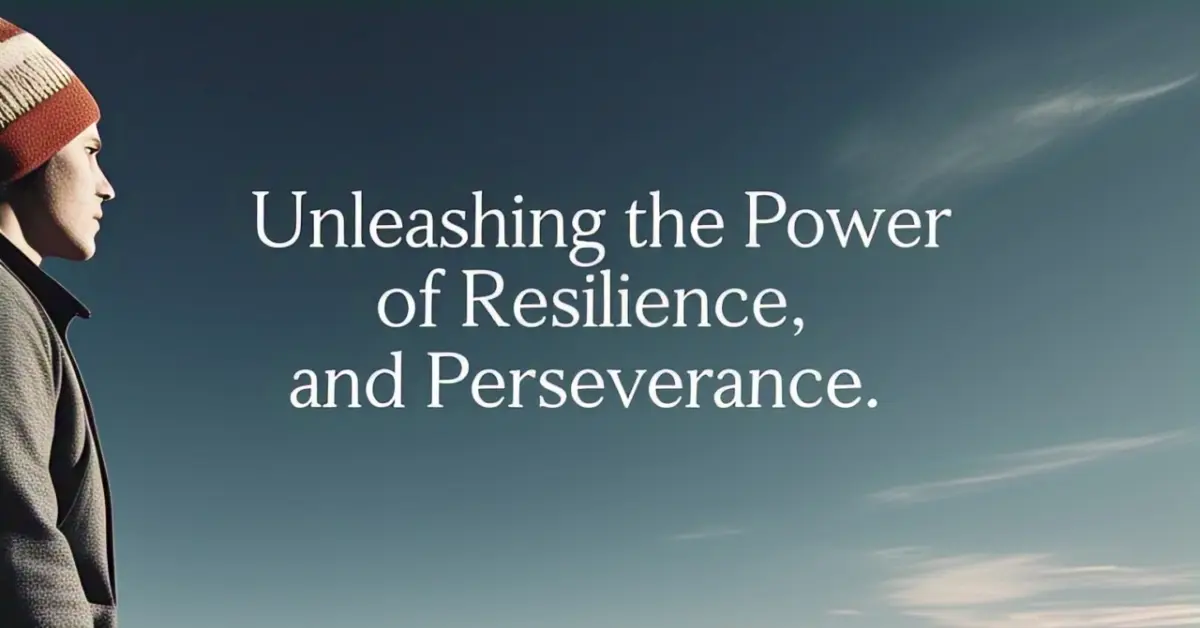Setbacks are an inevitable part of life, but they don’t have to define us. Instead, we can use them as opportunities for growth, learning and transformation. In this article, we’ll explore resilience strategies to help you turn setbacks into successes.
What is Resilience?
Resilience is the capacity to withstand, recover and adapt in the face of adversity. It’s not about being immune to challenges, but about facing them head-on, learning from them and emerging stronger.
Why Resilience Matters
In today’s fast-paced, ever-changing world, resilience is crucial for:
- Personal growth: Setbacks help us discover our strengths, weaknesses and areas for improvement.
- Innovation: Failure fosters creativity, problem-solving and new perspectives.
- Mental health: Resilience helps mitigate anxiety, depression and burnout.
- Relationships: Overcoming adversity together strengthens bonds and trust.
Strategies for Turning Setbacks into Success
Reframe Negative Thoughts
Challenge pessimistic self-talk by:
- Reframing: Replace negative thoughts with positive, realistic ones.
- Practicing gratitude: Focus on the good things, no matter how small.
- Mindfulness: Stay present and centered amidst chaos.
Embrace Emotional Intelligence
- Acknowledge emotions: Recognize, validate and express feelings.
- Self-awareness: Understand your triggers, strengths and weaknesses.
- Empathy: Practice compassion and understanding towards others.
Cultivate a Growth Mindset
- View challenges as opportunities: See setbacks as chances for growth.
- Learn from failures: Analyze, adapt and improve.
- Celebrate progress: Acknowledge small wins.
Foster a Support Network
- Build strong relationships: Nurture connections with positive, supportive people.
- Seek mentorship: Learn from others’ experiences.
- Join communities: Connect with like-minded individuals.
Practice Self-Care
- Physical wellness: Prioritize exercise, nutrition and rest.
- Mental relaxation: Engage in activities that bring calm and joy.
- Boundary setting: Learn to say “no” and prioritize yourself.
Focus on the Present
- Let go of the past: Release grudges and regrets.
- Don’t worry about the future: Focus on what you can control.
- Mindful living: Engage fully in the present moment.
Develop Problem-Solving Skills
- Identify root causes: Analyze setbacks objectively.
- Brainstorm solutions: Explore creative options.
- Take calculated risks: Step outside your comfort zone.
Celebrate Resilience
- Acknowledge strengths: Recognize your capacity for resilience.
- Share your story: Inspire others with your journey.
- Practice forgiveness: Let go of self-criticism.
Real-Life Examples of Resilience
- J.K. Rowling: Overcame poverty, rejection and depression to become a bestselling author.
- Stephen Hawking: Defied physical limitations to revolutionize physics and cosmology.
- Malala Yousafzai: Survived adversity to advocate for girls’ education.
Conclusion
Resilience is not an innate trait; it’s a skill that can be developed. By incorporating these strategies into your life, you’ll be better equipped to:
- Face setbacks with confidence
- Learn from failures
- Grow into a stronger, wiser version of yourself
Remember, resilience is not about being unbreakable; it’s about being brave, adaptable and determined.



